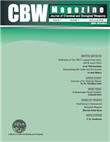Stephen P. Cohen and Others, The Future of Pakistan
Post 9/11, the regional strategic discourse in and on south Asia has been overwhelmed by Pakistan and Afghanistan. The past 10 years witnessed Pakistan’s degeneration into a violent, terror-infested state with diminishing authority of the civilian set-up. Moreover, its role in abetting terrorism as an instrument of state policy became known and was acknowledged internationally. The prevailing situation in Pakistan is grave and the likely future scenarios dismaying.
- Priyanka Singh |
- April 2012 |











